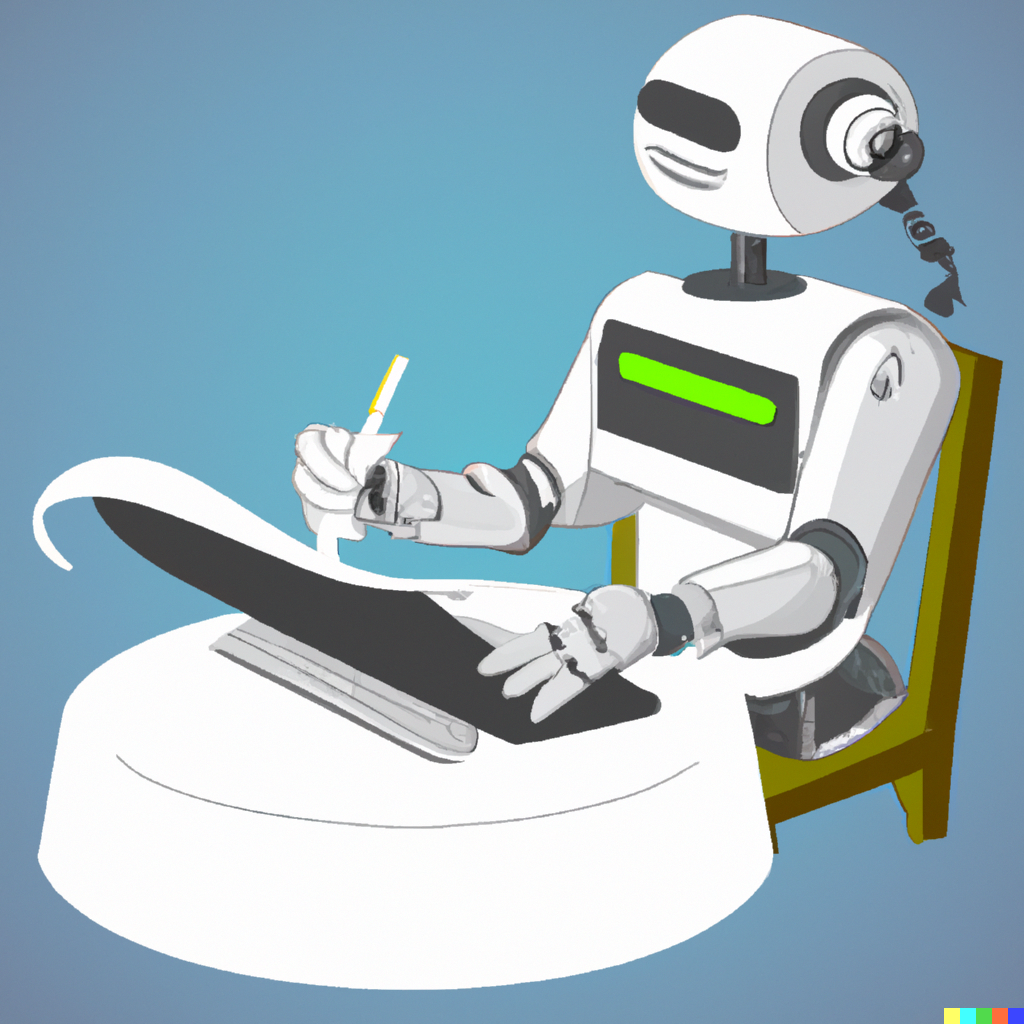
A human wrote this post. There. Just needed to clear that up. I researched, spent time digesting the subject matter, and then drafted and revised this text. Attribution and authorship are some of the many topics that have cropped up recently as the world goes crazy for ChatGPT. In the future, such disclaimers may be necessary for published content to distinguish that created by a person from that created by artificial intelligence (AI).
Just in case you’ve been hiding in a cave and missed the commotion, ChatGPT is an AI-powered language that can generate ‘new’ text, having been trained on a massive amount of content from public domain sources such as books, art, and other media. It’s straightforward to use, and if you haven’t tried it yet, I recommend you have a go. You can ask it questions and make requests for different types of content creation. It can even write stories – albeit very simple at this stage, but perhaps you can see where I’m going with this…
The big question is how and when AI might replace humans in creating content. Might we see AI novelists replacing humans in the bestseller charts? In my day job, there is concern that AI may replace the role of the traditional medical writer. Is this a possibility? The honest answer is I don’t know.
The current version of ChatGPT (3) is, without a shadow of a doubt, very impressive; it can find answers and easy solutions to potentially complex questions in seconds, help with learning and education, and summarize large quantities of information in simple language. However, it doesn’t take a lot of experimentation to find its limitations. That said, this version has 175 billion parameters (which, in simple terms, indicates the complexity of its workings), whereas the next version is expected to have 1 trillion or more. So, it’s fair to assume its limitations will become less evident with each version, and ChatGPT will likely impact and disrupt many industries over the coming months and years. It’s certainly not going away.
As mentioned, ChatGPT can write stories, but currently, the fiction it creates is very structured and almost template-like. This is because it has been trained on pre-existing content and can only base its creations on interpretation and piecing together of what it learns. Like a recipe list of ingredients, if you wish. If you ask it to write one short story after another, the pattern quickly becomes clear: Set-up/exposition, things happen, and main characters learn from their experience. The outputs are incredible, considering how they were created, but they wouldn’t necessarily make for a good read. In future versions, however, who is to say where the technology might take us?
As a person whose day job is editorial and whose spare time is spent writing, am I concerned that I may soon be replaced by a robot? No, I am not. Because creativity is a uniquely human trait, I expect AI to lead to the creation of a new stream of art, but not the replacement of artists. Creativity at its heart is about generating meaning from something new. It’s not just a matter of combining two random objects together and saying, ‘look, I’ve invented something’ – that new creation must serve some purpose, whether it solves a pre-existing problem or gives us a new means of reflecting on some facet of life. Purpose and/or meaning are needed, and these are very nuanced, subtle, and human concepts. They integrate the past, present, and future. And timing is key. Is this something AI could truly tap into?
Similarly, and from a novelist or a fiction writer’s point of view, consider how emotional intelligence, cultural nuances, and symbolism contribute to great stories. There is so much more to a character arc than to say, ‘Tommy learned that it was okay not to be happy all the time.’ There is insurmountable depth in great character studies, which can only be conveyed in stories through an understanding of behaviour, social context, and various aspects relating to the burden of existence.
AI may be able to review all the books ever written, but can it tell you how it feels to look into the eyes of your child for the first time or know what it’s like to say goodbye to a relative who is on their deathbed? Human existence is a well with no bottom; an endless source of joy and suffering and all the emotions in between. Will AI one day be able to mimic the human experience to truly be a creative force? It’s difficult to see how it could, but never say never. For now, I keep writing, but with a watchful eye on what is turning into a very exciting development for humanity. Interestingly, in creating such incredible technologies, it begs the question of what it truly is to be human. Can all aspects of our experience be recreated synthetically one day, or are we really one of a kind?
Yep, a human definitely wrote this post.

